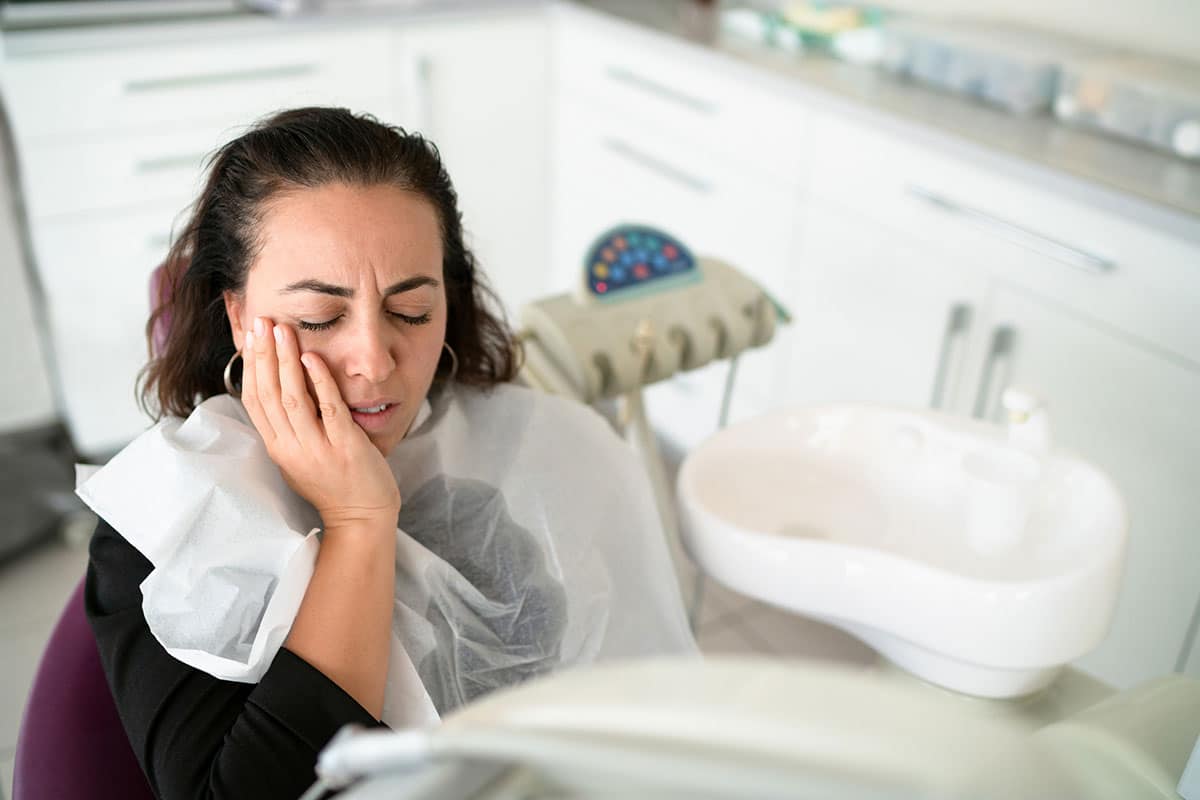
It’s true — you can reverse early gum disease (gingivitis), but don’t delay. You’ll need to get proactive about your daily brushing habits and dental checkups, but it’s well worth the effort because advanced gum disease is a leading cause of tooth loss. At Dentistry With a Smile in Livingston, New Jersey, Maria Victoria Sebastian, DDS, and our team are here to help. While we provide the dental care needed to prevent gum disease, we’re also available to answer your questions, suggest techniques to improve tooth brushing, and recommend products that will lower your risk for gum disease. Here, we give you a head start by exploring how gum disease develops and the best ways to prevent this serious condition.
How gum disease progresses
Here’s how gum disease begins and progresses:
Step 1: Plaque
The earliest stage of gum disease begins when bacteria, saliva, and sugar combine. You can’t avoid this stage because bacteria naturally thrive in your mouth and saliva is essential for your dental health and swallowing food. Sugar enters the mix every time you chew carbohydrates like pasta, beans, bread, and sweets. When the three mix together, they create a colorless film that sticks to your teeth (plaque). Plaque holds the bacteria against your teeth, which is a problem because bacteria produce acids that erode your enamel.
Step 2: Tartar
Without diligent brushing, plaque stays on your teeth, and within a few days, it hardens into tartar. Tartar still contains living bacteria that continue to cause problems with your teeth and gums.
Step 3: Gum disease
Gum disease (also called periodontal disease) goes through four stages, with each one causing progressive damage to your gums, bones, and teeth. Gingivitis Gingivitis, the first stage of gum disease, begins when bacteria in plaque or tartar get under your gums. The bacteria cause inflammation and infection. Gums typically bleed during brushing at this stage, and you may have swollen, red gums. Mild periodontitis Your gums pull away from your teeth, creating pockets that trap plaque, tartar, and bacteria. The bone supporting your teeth begins to erode. Moderate periodontitis At this stage, bone loss continues and the bacteria start damaging ligaments and soft tissues supporting your teeth. Severe periodontitis As periodontitis progresses, your bone and supportive tissues sustain so much damage that your teeth may loosen and fall out. By this stage, you have bleeding gums, noticeable infections around your gum line, and chronic bad breath.
Preventing gum disease
You can prevent gum disease while it’s in the first stage (gingivitis) — and effectively treat mild periodontitis — with diligent at-home dental care and regular dental checkups. Personal dental hygiene We recommend brushing your teeth at least twice daily, flossing at least once daily, and swishing with mouthwash. Brushing and flossing remove plaque and bacteria before tartar develops. Using a mouthwash and gently running a tongue scraper over your tongue after brushing also eliminates bacteria. We may prescribe a special mouthwash if you have a high risk of developing gum disease. Your risk is higher if you smoke, have a family history of periodontitis, have diabetes, use birth control pills, or you’re pregnant. Dental checkups Getting a dental checkup every six months is essential for preventing gum disease. Here’s why. Once tartar develops, you can’t clear it away with brushing. Your toothbrush also can’t reach plaque and bacteria in the pockets that develop when you have mild periodontal disease. But we can take care of these challenges. At your six-month dental exam, we use techniques like scaling and root cleaning to eliminate tartar and clear out the pockets. We may also put a topical antibiotic like ARESTIN® under your gums after cleaning the tartar. ARESTIN is a sustained-release antibiotic that eliminates bacteria and improves pockets in your gums. Whether you’re worried about your risk for gum disease, wonder about your brushing technique, or need help with bleeding gums, you will receive exceptional care at Dentistry With a Smile. Call our office or book an appointment online today.
